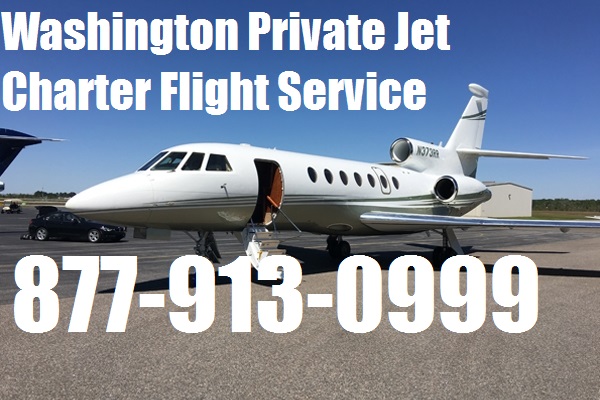emersontorranc
About emersontorranc
A Complete Examine on Private Plane Flights: Traits, Advantages, And Challenges
Lately, private plane flights have gained vital popularity among business executives, celebrities, and affluent individuals in search of convenience, flexibility, and privateness in their journey experiences. This report delves into the multifaceted elements of private aviation, exploring the developments, benefits, challenges, and future outlook of this unique mode of transportation.
Overview of Private Aviation
Private aviation encompasses a range of services, including charter flights, fractional possession, and private jet ownership. The marketplace for private flights has expanded significantly, driven by a growing demand for personalised journey experiences. In response to the National Business Aviation Affiliation (NBAA), private aviation contributes over $150 billion to the U.S. economy yearly, supporting over 1 million jobs.


Developments in Private Aviation
- Elevated Demand Submit-Pandemic: The COVID-19 pandemic has significantly altered travel behavior, with many people choosing private flights to avoid crowded business airports and ensure health security. The demand for private jet charters surged by over 30% in 2021 compared to pre-pandemic levels.
- Technological Advancements: The mixing of know-how in private aviation has transformed the booking course of and flight operations. Corporations now provide cellular apps for seamless booking, actual-time flight tracking, and enhanced customer service. Additionally, advancements in aircraft design and gas effectivity are making private flying extra accessible and sustainable.
- Sustainability Initiatives: As environmental issues develop, the private aviation sector is more and more specializing in sustainability. In case you loved this information and you would want to receive more information with regards to privatejetcardreview kindly visit the page. Operators are investing in sustainable aviation fuels (SAFs) and exploring electric and hybrid aircraft. The business’s dedication to decreasing its carbon footprint is becoming a key selling level for environmentally conscious travelers.
- Rise of On-Demand Providers: The emergence of on-demand charter services has democratized entry to private aviation. Platforms like JetSuite, Wheels Up, and VistaJet allow clients to book flights on an as-wanted foundation, making private flying extra inexpensive and versatile for a broader audience.
Advantages of Private Plane Flights
- Time Efficiency: One of the most significant advantages of private flights is the substantial time financial savings. Passengers can arrive on the airport minutes before departure, bypassing lengthy security traces and boarding processes. This effectivity is especially helpful for business travelers with tight schedules.
- Flexibility and Convenience: Private jets can operate on a versatile schedule, allowing travelers to choose departure instances that go well with their wants. Moreover, private flights can entry smaller airports nearer to the final destination, reducing general travel time and enhancing comfort.
- Privateness and Comfort: Private aviation gives unparalleled privateness, enabling passengers to conduct meetings, make confidential cellphone calls, or simply calm down with out the prying eyes of fellow travelers. The inside of private jets might be custom-made to satisfy individual preferences, providing a luxurious and comfortable atmosphere.
- Access to Remote Locations: Private planes can reach remote or much less accessible places that industrial airways could not service. This functionality opens up opportunities for leisure travelers to discover unique locations and for businesses to entry emerging markets.
Challenges in Private Aviation
- Price: The most vital barrier to entry for private aviation is the cost. Chartering a private jet can range from 1000’s to tens of 1000’s of dollars per flight, depending on the aircraft sort and distance. Possession and fractional ownership models also contain substantial upfront investments and ongoing upkeep prices.
- Regulatory Hurdles: The private aviation trade is topic to stringent rules that vary by country. Navigating these laws may be complex, notably for international flights. Compliance with security standards, customs, and immigration necessities provides layers of complexity to private travel.
- Environmental Issues: Despite efforts to adopt sustainable practices, private aviation is commonly criticized for its environmental impact. The carbon emissions related to private flights are significantly greater per passenger compared to commercial airlines. Addressing these concerns is crucial for the industry’s long-term viability.
- Market Volatility: The private aviation market is susceptible to financial fluctuations. Financial downturns can result in reduced demand for luxurious services, impacting charter firms and operators. The business’s reliance on excessive-internet-worth individuals makes it vulnerable to modifications in wealth distribution and economic stability.
The future of Private Aviation
The future of private aviation seems promising, driven by ongoing innovations and altering consumer preferences. Key tendencies which can be more likely to form the business embody:
- Increased Use of Expertise: The integration of synthetic intelligence and knowledge analytics will improve operational effectivity and customer expertise. Predictive analytics can optimize flight scheduling and upkeep, whereas AI-pushed customer support solutions can improve booking and assist processes.
- Sustainable Aviation Fuels: The adoption of SAFs is expected to increase as extra operators search to reduce their environmental influence. Investments in research and improvement for electric and hybrid aircraft may also play an important function in shaping the long run panorama of private aviation.
- Enlargement of On-Demand Companies: The trend toward on-demand private flights is prone to continue, with extra companies entering the market and offering aggressive pricing models. This democratization of private aviation could lead to a broader buyer base and increased accessibility.
- Give attention to Health and Safety: The pandemic has heightened awareness of health and security in journey. Private aviation companies will want to keep up excessive standards of cleanliness and security protocols to reassure customers and retain their trust.
Conclusion
Private plane flights have evolved into a significant segment of the aviation business, providing unique advantages tailor-made to the needs of travelers looking for effectivity, privateness, and adaptability. Whereas challenges reminiscent of value, regulatory compliance, and environmental affect persist, the way forward for private aviation seems bright, buoyed by technological advancements and a rising emphasis on sustainability. As the industry adapts to altering shopper preferences and market dynamics, private aviation will proceed to play a big role within the broader landscape of global travel.
No listing found.